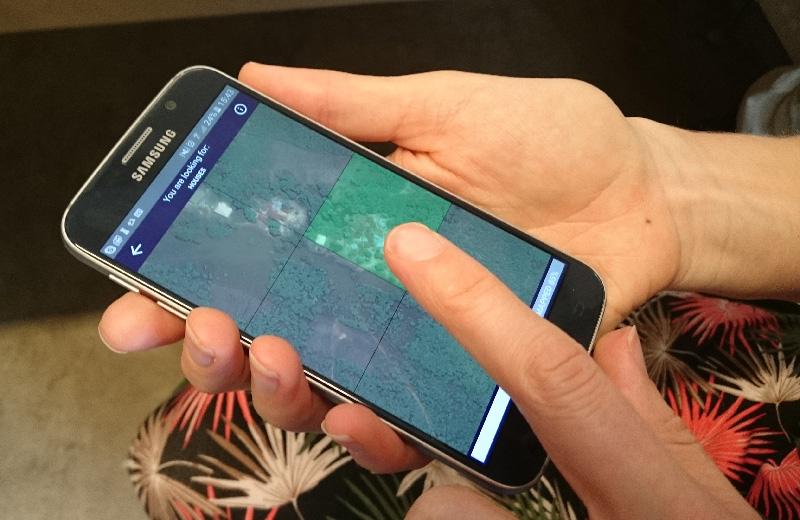MapSwipe app lets public help deliver medical care to most vulnerable

Read the original press release on the MSF website.
Médecins Sans Frontières (MSF) unveils a first-of-its-kind mobile phone app in which people across the globe can locate communities in remote parts of the world affected by natural disasters, disease outbreaks or conflict.
Shockingly MSF estimates that the homes of hundreds of millions of people from the world’s most vulnerable communities are not mapped. It’s impossible for aid workers to know exactly where and how many people are living in these parts of the world. This makes it difficult to plan mass vaccination campaigns, understand how diseases are spreading as well as deliver other life-saving activities.
On MapSwipe
MapSwipe is a mobile app developed for the Missing Maps Project to enable fast satellite image classification on mobile devices. MapSwipe was built with a financial and HR investment by MSF and the efforts of passionate humanitarian volunteers. It was developed by Ivan Gayton (MSF), Pim de Witte (pimdewitte.com), Sadok Cervantes Rabadán (sadok.mx) and Alison Orellana Malouf (Harvard GSD). Mapswipe was built using the frameworks and libraries the open source has already embraced, including React Native and nodejs. Anyone who knows Javascript can contribute.
MapSwipe was developed in collaboration with the Missing Maps project. The Missing Maps Project is an open collaboration founded by the American Red Cross, the British Red Cross, Humanitarian OSM Team (HOT) and Médecins Sans Frontières (MSF). For more information visit http://www.msf.org.uk/missing-maps-project.
Using MapSwipe
Users choose a crisis prone part of the world they want to help, such as spotting villages at risk from a cholera outbreak in the Democratic Republic of Congo. They must then swipe through satellite images of the region, tapping the screen when they see features they’re looking for including settlements, roads and rivers.
This information is fed back to mappers who need this information to build detailed and useful maps. At present, they have to spend days scrolling through thousands of images of uninhabited forest or scrubland looking for communities that need mapping. Now, members of the public can directly contribute to MSF’s medical activities by locating people in need more quickly so mappers, and ultimately medical professionals on the ground, can get straight to work.
MapSwipe is available to download for free from your relevant app store for anyone with an Android or Apple smartphone.
Some of the first crisis areas that need mapping are Jonglei State in South Sudan and the border regions of Sierra Leone, Guinea and Liberia. All regions are seriously affected by internal conflict, war or disease epidemics and are home to thousands of civilians that need life-saving surgery and medicine.
Pete Masters, Missing Maps lead MSF says:
We’re immensely proud to launch our first mobile phone app. We believe it empowers anyone with a phone or tablet to help medical professionals across the world get vital care to those in need, whilst being just as fun to use and addictive as a dating app. We don’t think anyone has done anything like this before.
There are vast amounts of unmapped world out there and the human eye is still the most powerful tool we have to spot where people are living. It takes mappers months to process all of these images but we hope thousands of members of the public will want to use this app and help us put vulnerable people on the map more quickly.
It only takes 5 minutes to identify around 40 images so whether you’re waiting for a bus to arrive or tea to cool we urge you to spare some of your time. It even works offline so is perfect for the morning commute. Swap a few minutes of swiping left or right to find your next date or playing a game on your phone for a few minutes identifying settlements in South Sudan. These minutes can help save lives.
Dr Kiran Jobanputra, Emergency Doctor with MSF says:
From my experience working as an MSF doctor in countries from the Democratic Republic of Congo to Somalia, I know how hard it is to have a plan and implement lifesaving activities without having the best possible information at your fingertips. I am very excited that the public can now help my colleagues in similar situations all over the world by mapping the places where they work.
The maps created will be available to use by everyone, everywhere, benefitting humanitarian organisations like MSF but also local people, helping them have something fundamental that most of the world take for granted.

